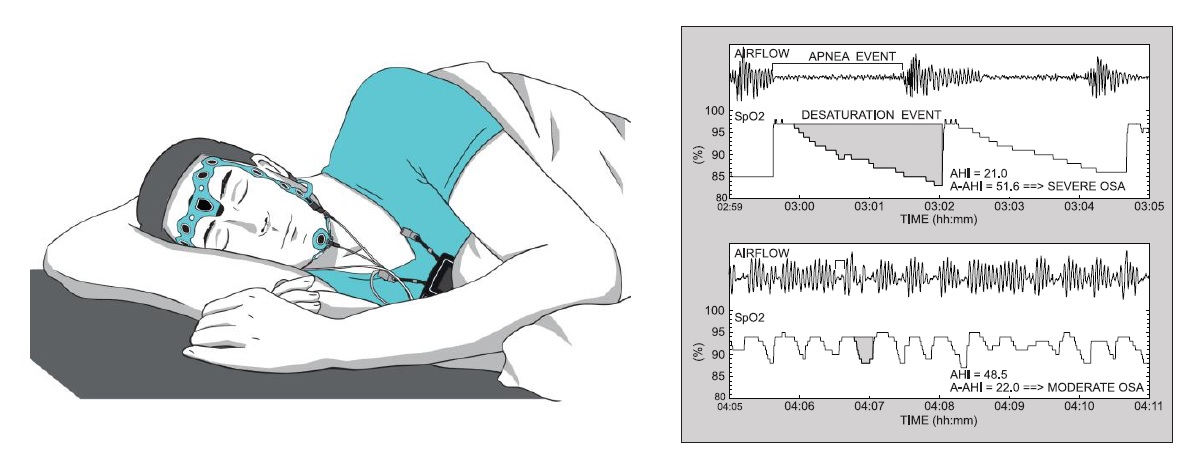OSA Diagnostics
Towards enhances and individualized diagnostics of obstructive sleep apnea with wearable sensors and sophisticated computational parameters

Summary: Early diagnosis and timely treatment of obstructive sleep apnea (OSA) improve quality of life and decrease risk for life-threatening cardiovascular comorbidities. Unfortunately, current diagnostic methods for OSA are complicated, expensive and labour-intensive. Expensive and laborious in-laboratory polysomnography (PSG) is the gold standard in diagnosing OSA, but unfamiliar environment of sleep lab has an adverse effect on patient’s sleep. Despite of vast amount of information collected during an overnight PSG study, the field of clinical sleep medicine has settled for one simple metric, apnea-hypopnea index (AHI), i.e. number of obstruction events per hour to characterize the disease severity. The lack of strong association between AHI and clinical consequences (e.g. daytime sleepiness, hypertension and stroke) indicates that AHI poorly integrates with the complex pathophysiology of OSA.
We hypothesize that these issues can be solved by introducing a simple diagnostic method for OSA utilizing minimally sleep-disturbing wearable sensors, automatic analysis tools and new diagnostic parameters. This could response a growing pressure to move most sleep studies from sleep lab to home. Furthermore, we hypothesize that new innovative computational parameters that take into account the severity of individual obstruction events will significantly increase the accuracy of OSA severity estimation. We will reach the ambitious goals by providing knowledge on feasibility, usability and diagnostic accuracy of new wearable sensors for their further development. Connection between obstruction event severity, cortical arousals and hemodynamic responses are also explored to reveal new OSA-related biomarkers helping us to further develop our innovative diagnostic parameters. Reaching these goals is facilitated by active collaboration and research exchange with top research groups in Universitätsmedizin Berlin, Princess Alexandra Hospital, Brisbane and Loewenstein Hospital, Raanana.
The outcomes of this research can lead to paradigm shift in the diagnostics of OSA and have a significant positive impact in national health and socioeconomy. Wearable sleep monitoring systems and sophisticated analysis algorithms also open a huge global business potential for business partners operating at medical device sector as well as for health centers and sleep clinics by offering telemedicine sleep diagnostic services.
Research period: 1.1.2018-31.12.2019
Funding: Academy of Finland (ICT 2023: User-Centred Health Technology and Digital Health).
